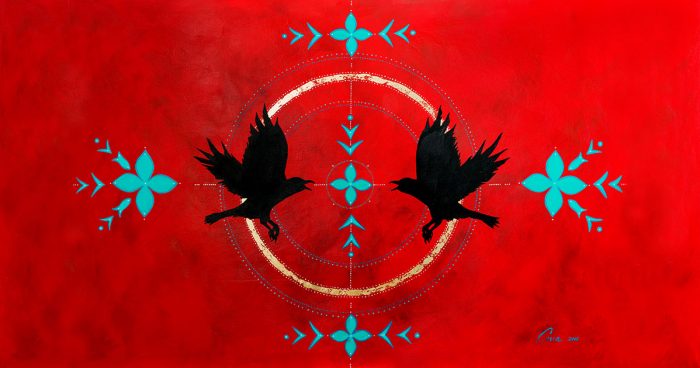
Image provided by Eruoma Awashish
March 21, 2018 – Montreal – National Film Board of Canada (NFB)
On March 22, the National Film Board of Canada will launch Indigenous Cinema (#NFBIndigenous), an NFB Web page offering free streaming of more than 200 new and classic titles from its unparalleled collection of films by Indigenous directors—including 20 new and recently added films.
Indigenous Cinema has been developed as part of the NFB’s three-year Indigenous Action Plan to transform the relationship with Indigenous creators and audiences.
Highlights include:
Mike Kanentakeron Mitchell’s groundbreaking You Are on Indian Land; several titles from the legendary Alanis Obomsawin, including her landmark Kanehsetake: 270 Years of Resistance; Gil Cardinal’s powerful autobiographical Foster Child; Tasha Hubbard’s Canada Award-winning Two Worlds Colliding; Elisapie Isaac’s acclaimed If the Weather Permits as well as recent award winners like Nowhere Land, by Bonnie Ammaaq, and this river, by Katherena Vermette and Erica MacPherson, both named Best Short Doc at imagineNATIVE.
New and recently added titles include Diane Obomsawin’s multi-award-winning animated short I Like Girls; Mosha Michael’s classic short Natsik Hunting, the first Canadian film by an Inuk filmmaker; as well as Dana Claxton’s Yuxweluptun: Man of Masks, profiling the provocative work and life of Coast Salish and Okanagan artist Lawrence Paul Yuxweluptun.
Indigenous Cinema now makes it easier than ever to find Indigenous stories and perspectives—searchable by subject, director’s name, Indigenous people or nation, or production date—along with curated and contextualized playlists for different age levels, plus filmmaker biographies.
The collection has been catalogued using an adapted version of the Indigenous Materials Classification Schema (IMCS), originally developed by Camille Callison (Tahltan Nation), Alissa Cherry and Keshav Mukunda based on the framework of the Brian Deer Classification System, first developed by Brian Deer, Kanien’kéhaka (Mohawk), and first implemented at the National Centre for Truth and Reconciliation (NCTR) Reference Library in 2015.
The design of the website is based on original artwork by Eruoma Awashish, a graphic artist of Atikamekw and Québécois heritage.
Many of the films in this collection are currently being screened in communities right across Canada as part of the Aabiziingwashi (#WideAwake) Indigenous cinema screening series. Since its launch in April 2017, there have been 700 community screenings in every Canadian province and territory.
This NFB’s Indigenous Action Plan features over 30 commitments that the NFB is implementing to respond to the recommendations of Canada’s Truth and Reconciliation Commission.
–30–
Related Products
Electronic Press Kit | Images, trailers, synopsis: Aabiziingwashi (#WideAwake)
Associated Links
Indigenous Cinema
NFB’s Indigenous Action Plan
Eruoma Awashish
#NFBIndigenous